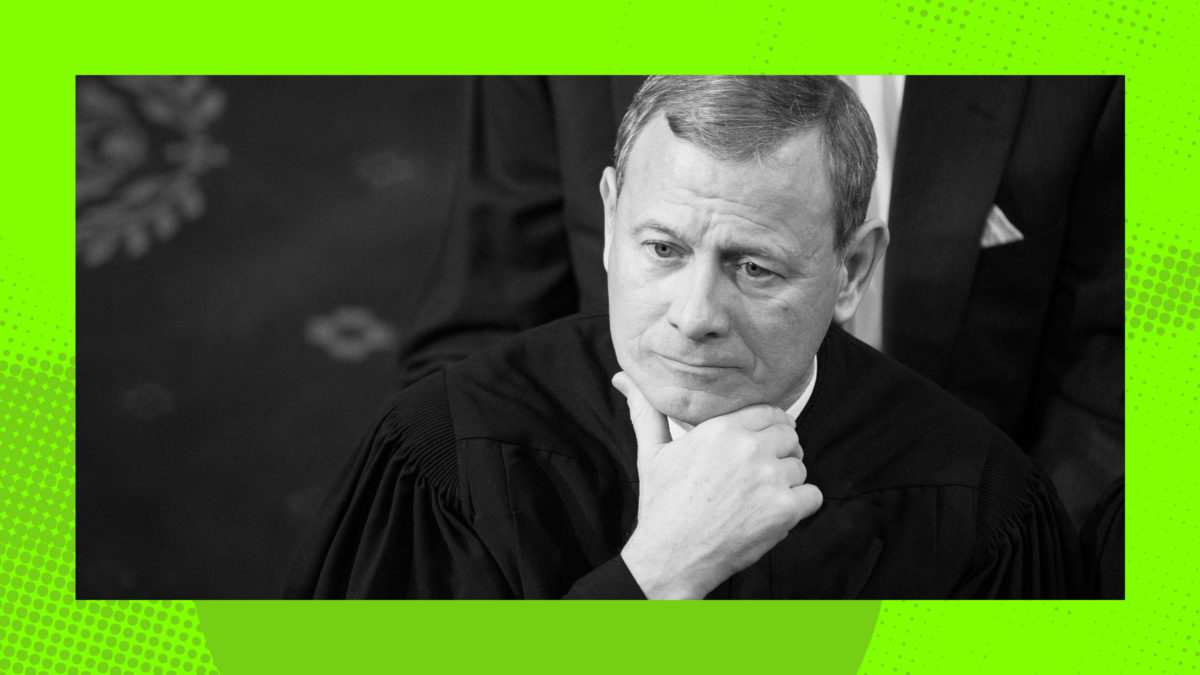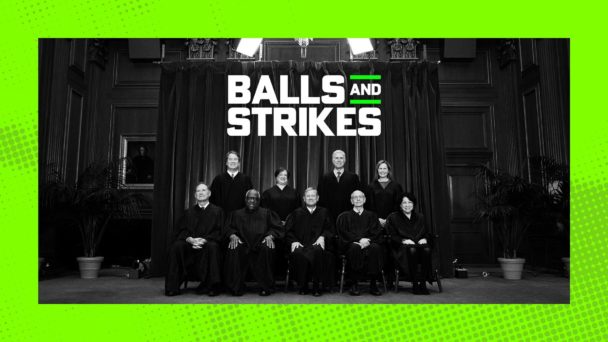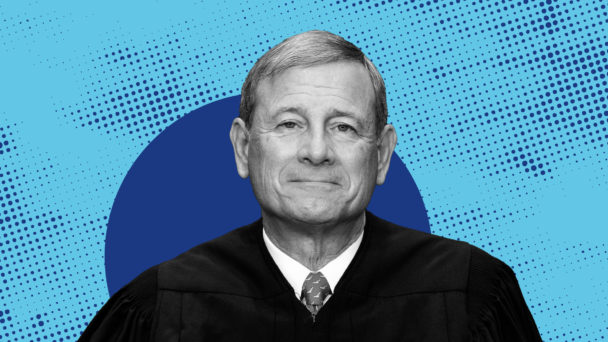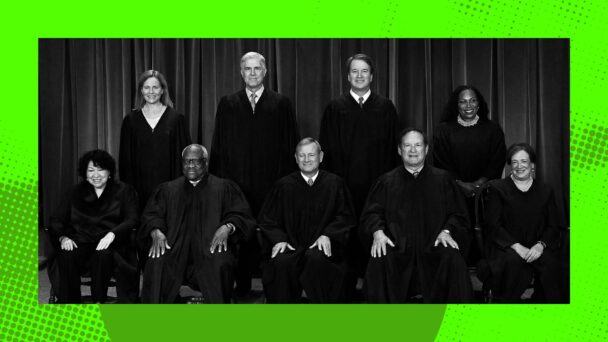Last year, Black Louisianans successfully argued in federal court that the state’s Republican-led legislature unlawfully diluted their voting strength, by adopting a redistricting plan that packed the Black population into a few districts while fragmenting it across others. Judge Shelly Dick, an Obama appointee, found that Louisiana’s 2022 electoral maps did not “afford an equal opportunity for Black voters to elect preferred candidates” and, as such, violated Section 2 of the Voting Rights Act.
Since Louisiana saw no problem with its unlawful, racist map, it decided there must be a problem with the law: Last week, Louisiana argued to a federal appeals court that Section 2 of the Voting Rights Act is unconstitutional.
The Voting Rights Act is a bedrock federal civil rights law that makes sure people of color can actually vote, and that their votes count as much as white people’s, especially in the face of state and local governments that regard nonwhite people’s ability to exercise their rights with attitudes ranging from indifference to hostility. But according to Louisiana Deputy Solicitor General Morgan Brungard, Section 2 of the VRA isn’t constitutional because it isn’t necessary anymore. “Conditions that originally justified those measures no longer apply to Louisiana,” Brungard told the Fifth Circuit during oral argument in Nairne v. Landry on January 7. To support its case, Louisiana points out that the state legislature has more Black representation than ever before, and that a “substantial” number of White voters—anywhere from 18 to 27 percent on average—vote for Black candidates.
Black Louisianans described white people’s voting habits differently, and proved to the trial court that white Louisianans consistently vote as a bloc to defeat the candidates preferred by Black voters. The court was also less impressed than Louisiana that roughly one-quarter of its state legislators are Black, as Black people make up about one-third of the state’s population
To the extent voting conditions have actually changed for the better anywhere in Louisiana and elsewhere in the United States, it is because of the Voting Rights Act. Now, Louisiana and its allies are contending that the law has outlived its legality as a result of that success. And this isn’t the first time Republicans have advanced this peculiar legal standard: The conservative legal movement has repeatedly promoted the idea that laws can age out of constitutionality when the laws in question are intended to extend full citizenship to Black people.
Congress passed the VRA in 1965 almost a century after the ratification of the Fifteenth Amendment in order to finally give effect to the Constitution’s prohibition on racial discrimination in voting. The statute’s two main enforcement mechanisms are Section 2, which allows the government to strike down discriminatory voter policies that popped up throughout the country, and Section 5, which empowers the government to “preclear” any future proposed changes to voter policies in jurisdictions with a history of discrimination.

(Photo by Brooks Kraft LLC/Corbis via Getty Images)
For the past decade, however, Section 2 has been forced to function alone, since the Supreme Court declared that the VRA’s formula for determining which jurisdictions are subject to Section 5 was unconstitutional—or rather, that it was unconstitutional now. In Shelby County v. Holder, Chief Justice John Roberts explained for the 5-4 Republican majority that the preclearance mechanism was previously justified by the “exceptional conditions” that existed in 1965, but was no longer constitutional “in light of current conditions.” It was 2013, and the president was Black; as Roberts said, “Our country has changed.”
Louisiana parroted this exact argument to the Fifth Circuit, and cited Shelby County liberally in its brief. Quoting at length from Roberts’s grand proclamations about an allegedly post-racial America, Louisiana claimed that the state, too, “has changed,” and that “while any racial discrimination in voting is too much,” Congress must make sure that a legislative remedy “speaks to current conditions.” Louisiana also seized on Shelby County’s declaration that the “current burdens” of the VRA must be justified by “current needs,” and argued that Congress’s authority for “imposing” the law on the state “remains in the past.”
Kavanaugh engaged in much of this same clock-watching in Students for Fair Admissions, the Court’s 2023 decision striking down race-conscious college admissions. In his concurrence in that case, Kavanaugh stressed some justices’ speculation in Grutter v. Bollinger, a 2003 affirmative action case, that the policy probably wouldn’t be needed in 25 years, and insisted that Grutter had blessed race-conscious admissions “for another generation—and only for another generation.” Twenty-five years is a blink of an eye compared to the centuries during which racial oppression has been a mainstay of American law. But the conservative legal movement didn’t want to deal with it anymore, and so it translated its own uncomfortableness into unconstitutionality. Laws crafted to remedy injustice—and only laws crafted to remedy injustice—face this temporal test of legality.
White judges have been fretting over the time spent attempting to remedy harms that the law inflicted on racial lines from the moment that other powerful white people acknowledged that such harms exist. A mere 20 years after the Emancipation Proclamation, an already-annoyed Supreme Court asked when Black people would “cease to be the special favorite of the laws.” It is Congress that has the power to answer questions like this one—to decide when and how its laws go into effect—and there is nothing in the Constitution to suggest the imperatives of the Reconstruction Amendments have a best-by date. Louisiana’s claim that the Voting Rights Act has aged out of legality ignores the Constitution’s commitment to combatting inequality, and instead prioritizes white people’s exhaustion with that fight.





